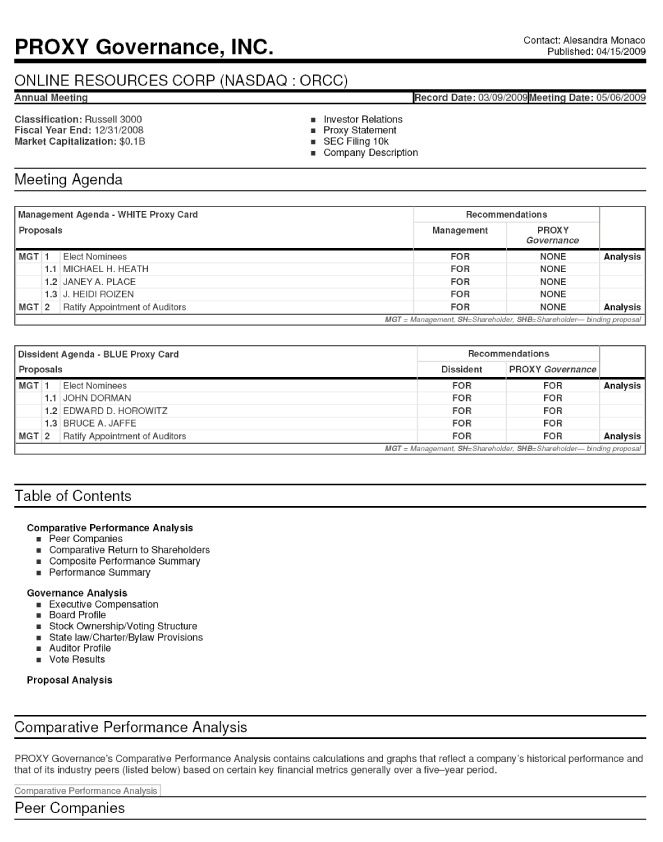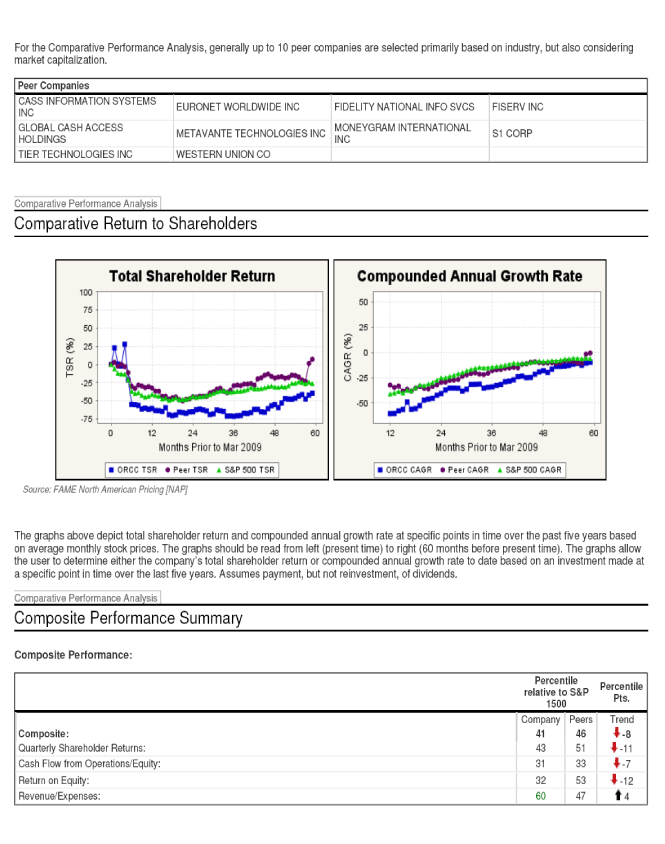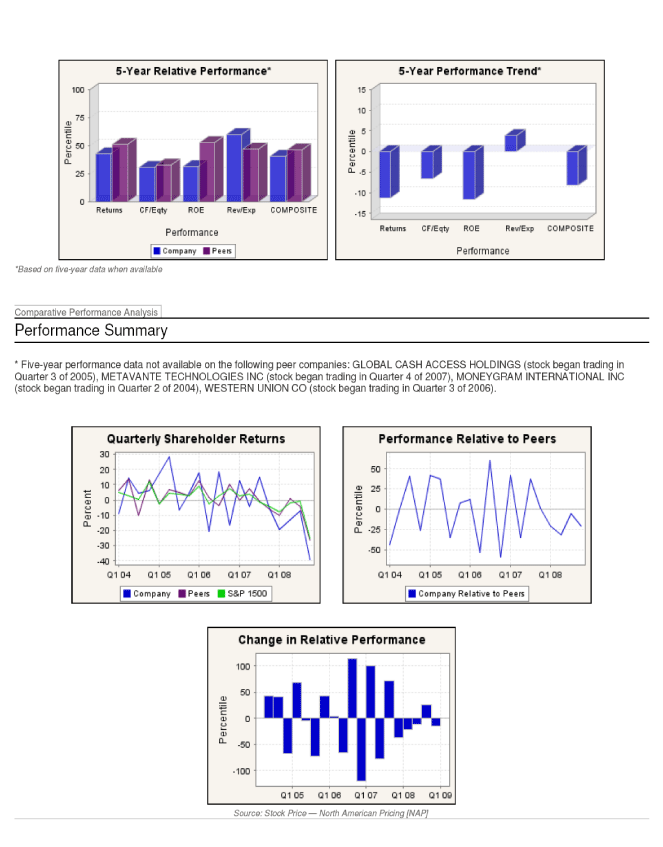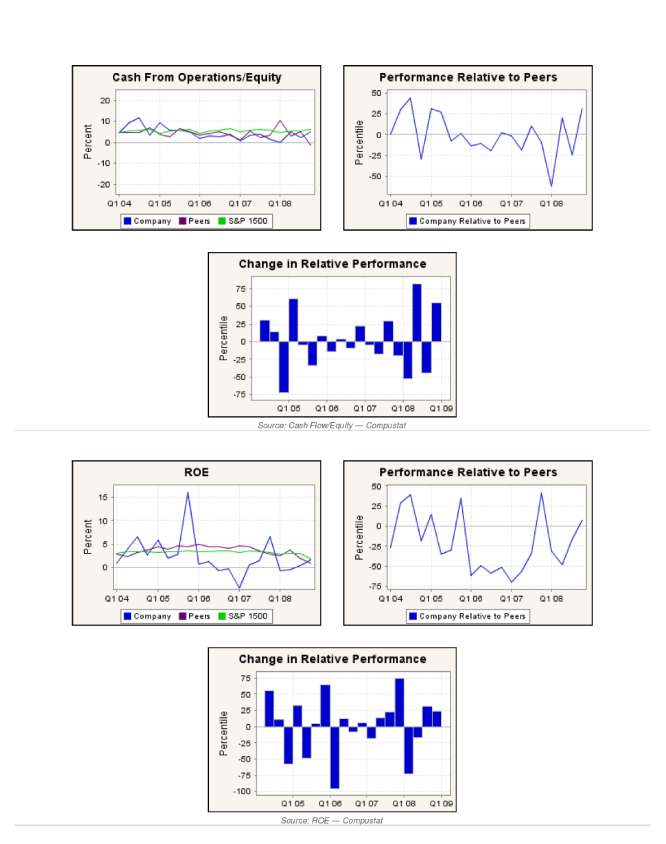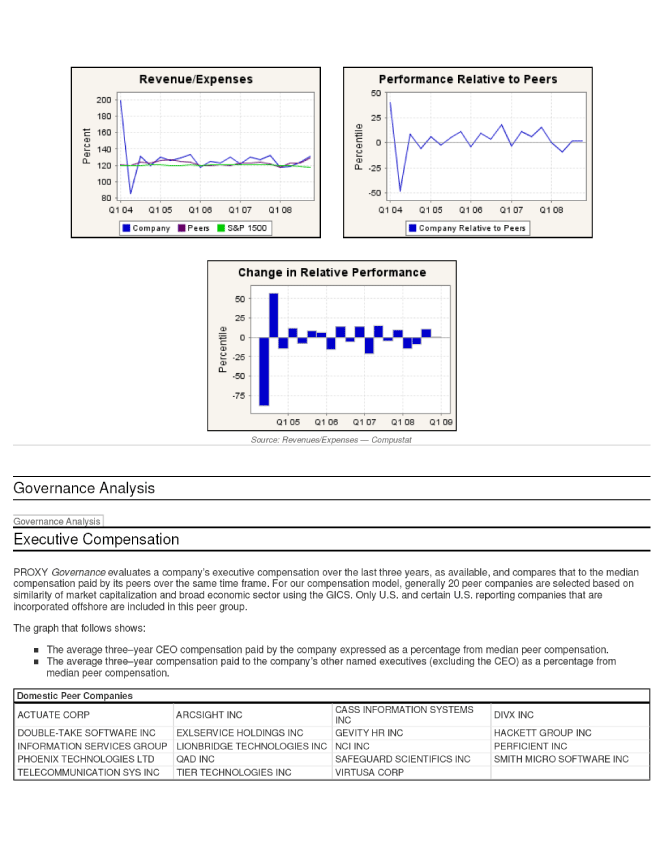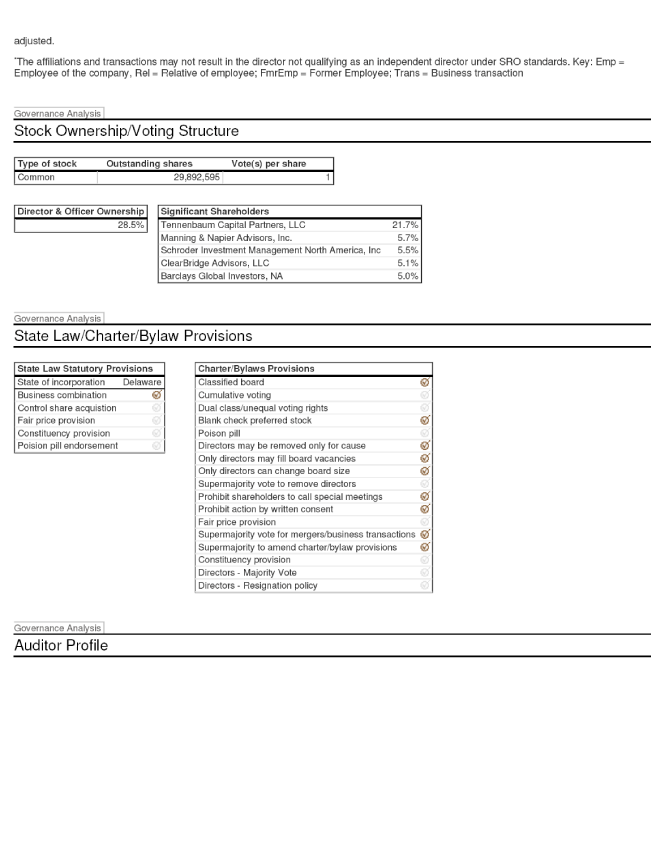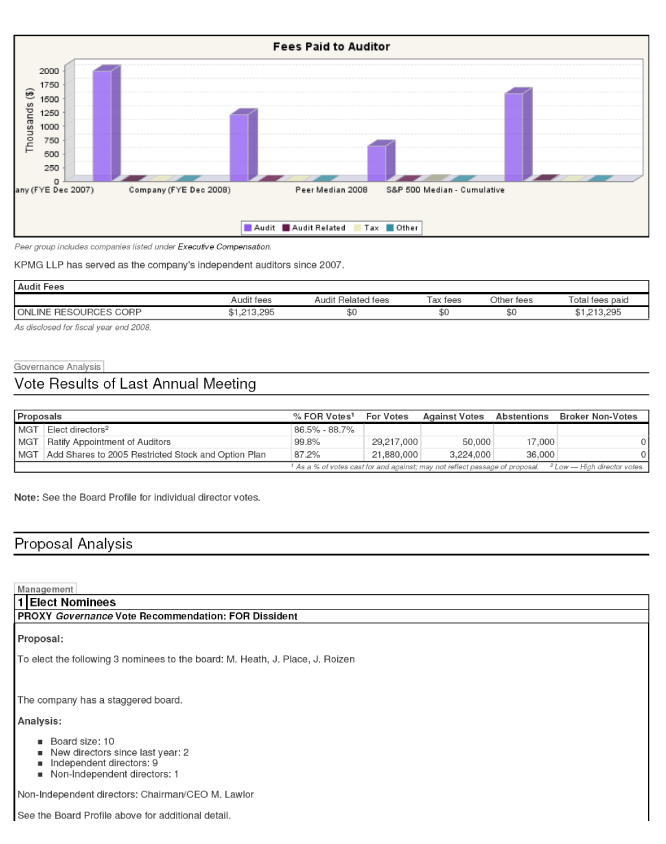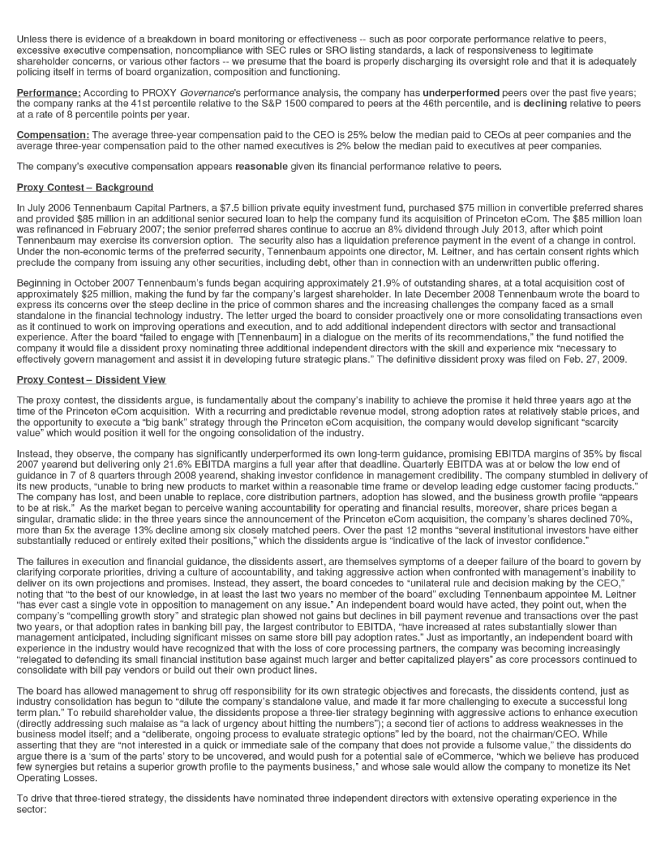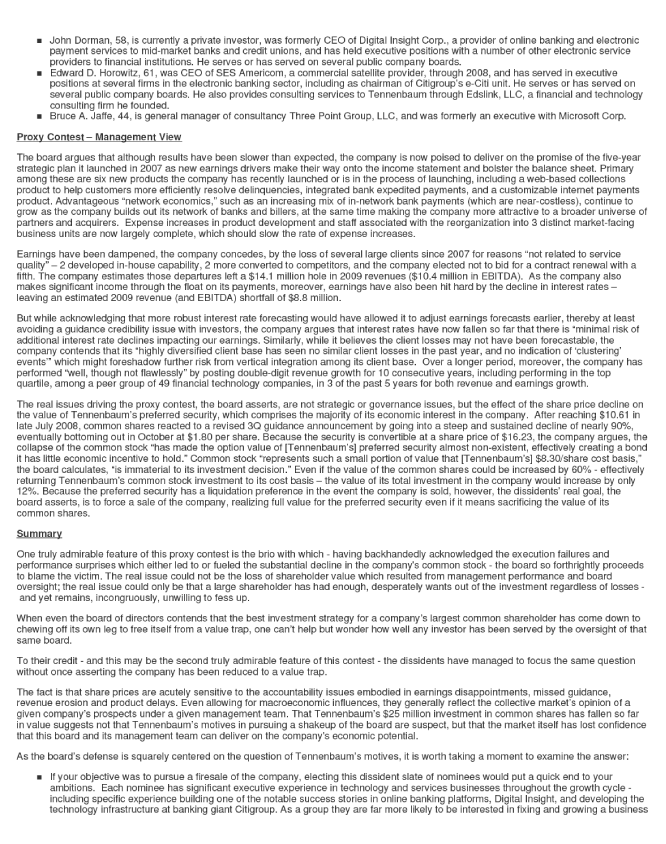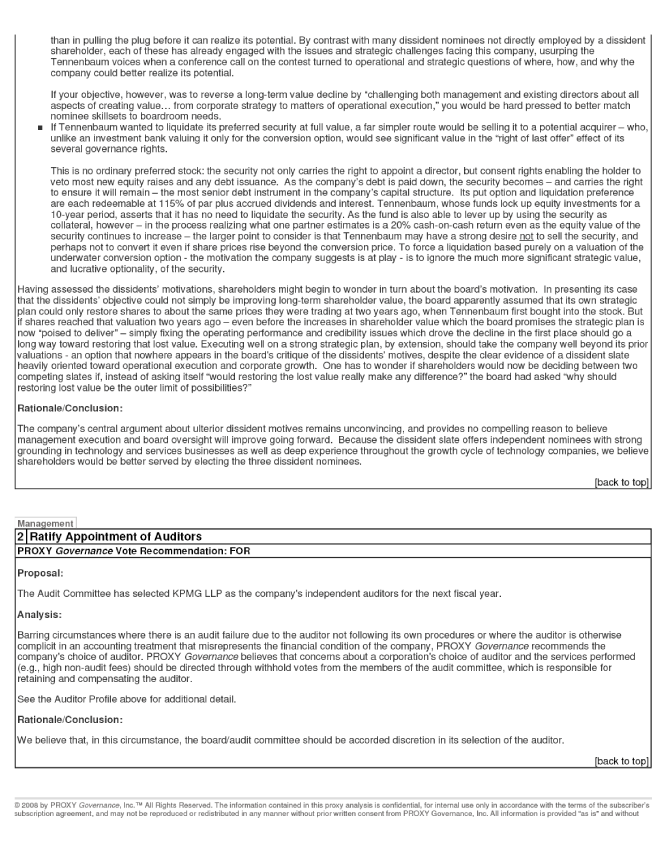| -John Dorman, 58, is currently a private investor, was formerly CEO of Digital Insight Corp., a provider of online banking and electronic payment services to mid-market banks and credit unions, and has held executive positions with a number of other electronic service providers to financial institutions. He serves or has served on several public company boards. —Edward D. Horowitz, 61, was CEO of SES Americom, a commercial satellite provider, through 2008, and has served in executive positions at several firms in the electronic banking sector, including as chairman of Citigroup s e-Citi unit. He serves or has served on several public company boards. He also provides consulting services to Tennenbaum through Edslink, LLC, a financial and technology consulting firm he founded. - -Bruce A. Jaffe, 44, is general manager of consultancy Three Point Group, LLC, and was formerly an executive with Microsoft Corp. Proxy Contest Management View The board argues that although results have been slower than expected, the company is now poised to deliver on the promise of the five-year strategic plan it launched in 2007 as new earnings drivers make their way onto the income statement and bolster the balance sheet. Primary among these are six new products the company has recently launched or is in the process of launching, including a web-based collections product to help customers more efficiently resolve delinquencies, integrated bank expedited payments, and a customizable internet payments product. Advantageous network economics, such as an increasing mix of in-network bank payments (which are near-costless), continue to grow as the company builds out its network of banks and billers, at the same time making the company more attractive to a broader universe of partners and acquirers. Expense increases in product development and staff associated with the reorganization into 3 distinct market-facing business units are now largely complete, which should slow the rate of expense increases. Earnings have been dampened, the company concedes, by the loss of several large clients since 2007 for reasons not related to service quality 2 developed in-house capability, 2 more converted to competitors, and the company elected not to bid for a contract renewal with a fifth. The company estimates those departures left a $14.1 million hole in 2009 revenues ($10.4 million in EBITDA). As the company also makes significant income through the float on its payments, moreover, earnings have also been hit hard by the decline in interest rates leaving an estimated 2009 revenue (and EBITDA) shortfall of $8.8 million. But while acknowledging that more robust interest rate forecasting would have allowed it to adjust earnings forecasts earlier, thereby at least avoiding a guidance credibility issue with investors, the company argues that interest rates have now fallen so far that there is minimal risk of additional interest rate declines impacting our earnings. Similarly, while it believes the client losses may not have been forecastable, the company contends that its highly diversified client base has seen no similar client losses in the past year, and no indication of clustering events which might foreshadow further risk from vertical integration among its client base. Over a longer period, moreover, the company has performed well, though not flawlessly by posting double-digit revenue growth for 10 consecutive years, including performing in the top quartile, among a peer group of 49 financial technology companies, in 3 of the past 5 years for both revenue and earnings growth. The real issues driving the proxy contest, the board asserts, are not strategic or governance issues, but the effect of the share price decline on the value of Tennenbaum s preferred security, which comprises the majority of its economic interest in the company. After reaching $10.61 in late July 2008, common shares reacted t o a revised 3Q guidance announcement by going into a steep and sustained decline of nearly 90%, eventually bottoming out in October at $1.80 per share. Because the security is convertible at a share price of $16.23, the company argues, the collapse of the common stock has made the option value of [Tennenbaum s] preferred security almost non-existent, effectively creating a bond it has little economic incentive to hold. Common stock represents such a small portion of value that [Tennenbaum s] $8.30/share cost basis, the board calculates, is immaterial to its investment decision. Even if the value of the common shares could be increased by 60% — effectively returning Tennenbaum s common stock investment to its cost basis the value of its total investment in the company would increase by only 12%. Because the preferred security has a liquidation preference in the event the company is sold, however, the dissidents real goal, the board asserts, is to force a sale of the company, realizing full value for the preferred security even if it means sacrificing the value of its common shares. Summary One truly admirable feature of this proxy contest is the brio with which — having backhandedly acknowledged the execution failures and performance surprises which either led to or fueled the substantial decline in the company’s common stock — the board so forthrightly proceeds to blame the victim. The real issue could not be the loss of shareholder value which resulted from management performance and board oversight; the real issue could only be that a large shareholder has had enough, desperately wants out of the investment regardless of losses — and yet remains, incongruously, unwilling to fess up. When even the board of directors contends that the best investment strategy for a company s largest common shareholder has come down to chewing off its own leg to free itself from a value trap, one can t help but wonder how well any investor has been served by the oversight of that same board. To their credit — and this may be the second truly admirable feature of this contest — the dissidents have managed to focus the same question without once asserting the company has been reduced to a value trap. The fact is that share prices are acutely sensitive to the accountability issues embodied in earnings disappointments, missed guidance, revenue erosion and product delays. Even allowing for macroeconomic influences, they generally reflect the collective market s opinion of a given company s prospects under a given management team. That Tennenbaum s $25 million investment in common shares has fallen so far in value suggests not that Tennenbaum s motives in pursuing a shakeup of the board are suspect, but that the market itself has lost confidence that this board and its management team can deliver on the company’s economic potential. As the board s defense is squarely centered on the question of Tennenbaum s motives, it is worth taking a moment to examine the answer: —If your objective was to pursue a firesale of the company, electing this dissident slate of nominees would put a quick end to your ambitions. Each nominee has significant executive experience in technology and services businesses throughout the growth cycle - including specific experience building one of the notable success stories in online banking platforms, Digital Insight, and developing the technology infrastructure at banking giant Citigroup. As a group they are far more likely to be interested in fixing and growing a business |
